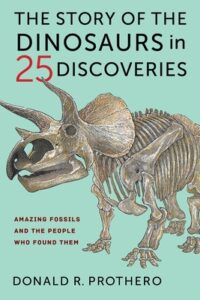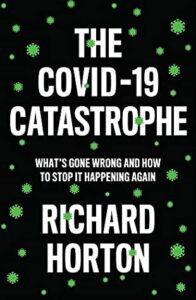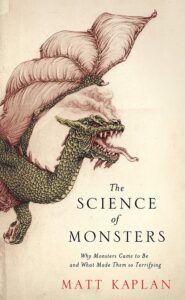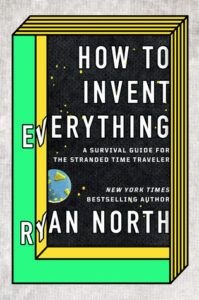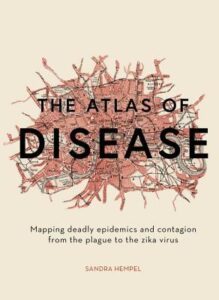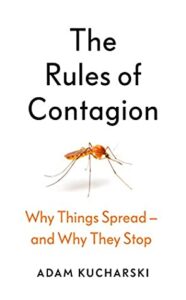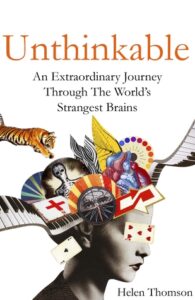 Invasive Aliens: The Plants and Animals From Over There That Are Over Here, Dan Eatherley
Invasive Aliens: The Plants and Animals From Over There That Are Over Here, Dan Eatherley
Invasive Aliens discusses invasive organisms that are not native to Britain and how they got here, how they affect their new home, and what that implies for the future. Some of the invasives we’ve embraced as our own (rabbits and buddleia) while others are hated (grey squirrels)… and others, of course, we know very little about.
I actually picked this up partly because one of the reviews on Amazon complained about “snide references” to Brexit and Nazis. For your pleasure, I’ve pulled out those three quotations! From the introduction:
Many Brits pride themselves as stoic defenders of a green and pleasant land, boasting a record of resistance against aggressors dating back centuries, be it weathering the Spanish Armada or defying Hitler’s Blitzkrieg. This patriotic fervour, and its clarion call ‘to control borders’, may in part explain the 2016 Brexit vote. Yet, a cursory examination of the natural world reveals that while many interlopers of the human variety have been kept at bay, our islands have throughout history been colonised by a succession of animals, plants, fungi and other organisms that apparently belong elsewhere. Indeed, it’s often hard to sort out the native from foreign.
Which doesn’t exactly make the book “political cant disguised as a book on nature”, to my mind, given it’s mentioned once in the commentary and almost never again. There’s one other reference to Brexit in the entire book:
The UK has often taken a lead; for instance, in banning the sale of certain aquatic plants in 2013. But the political imperative of maintaining and boosting frictionless international trade – Brexit or no Brexit – risks trumping concerns about the unavoidable corollary of that flow of goods and people, namely, the arrival of unwanted new species.
Oh noes, the politics. Picture me with my hand to my forehead, swooning.
Finally, the book wraps up with some thoughts about how we’re going to treat invasive species in the future, mentioning the contention of some people that invasives actually boost biodiversity, and trying to tease apart what policy could and should be — and I guess this particular paragraph could come off as a bit pointed.
Public awareness of the issue is higher than ever before, with sensational news headlines stoking our fears. Giant hogweed, introduced as a horticultural curiosity from the Caucasus mountains in the 1820s, has been recast as Britain’s ‘most dangerous plant’ with sap that ‘melts’ a child’s skin. ‘Monster goldfish’ are on the prowl. ‘Sex mad Spanish slugs’ are terrorising our gardens. Emotive terminology isn’t just the preserve of tabloids: even serious scientists will talk about ‘demon shrimps’ and ‘killer algae’ with a straight face. Some of the language has a xenophobic flavour: introduced plants and animals are ‘ex-pats’ or ‘immigrants’, which ‘pollute’ our pristine environment and need to be ‘bashed’ and ‘sent home’. Perhaps it’s telling that the Nazis were among the first to take against non-natives, drafting a ‘Reich Landscape Law’ in 1941 banishing exotic plants from pure German landscapes. Some argue that the current fixation with non-indigenous wildlife is bound up with subliminal, and not so subliminal, antipathy to arrivals of the human kind. Concerns about non-natives and immigration to our small, overcrowded island are, they say, all of a piece.
Despite those snippets, I promise the rest of the book is actually focused on exactly what it suggests — those are the sole references to Brexit or Nazis in the entire 326-page volume, and politics in general impinges very little beyond the mention of initiatives here or there to eradicate this or that organism, due to impacts on the environment or native species. And, you know, I do wonder if these remarks put their finger on something.
Overall, despite my overall feeling of entertainment about that review, the book felt a little bogged down. The chapters are roughly themed (e.g. around freshwater invasives), but the examples start to feel like a succession of “and ANOTHER thing” — just as I felt it was wrapping up toward a conclusion, we’d look at another example (and it probably wouldn’t add much). Personally, I’d have refined the chapters down a bit and stuck to 2-3 examples per chapter to illustrate the points and the particular difficulties facing a certain part of the ecosystem, and overall slimmed things down. Even finishing the chapters off with some tables of other relevant invasives would have given all the examples in a way that’s a bit easier to digest…
It’s not unenjoyable, taken in short bursts, but my attention did wander quite a lot. The author’s voice is not super-engaging, even though he explains well and chooses good examples. Maybe I also suffer from knowing this stuff a little too well; reading popular science is sometimes the equivalent of shouting “HE’S BEHIND YOU” for an entire play, for me. Bit of a problem of preaching to the choir, except it’s a very opinionated choir (with some facts backing up its opinions) that is not sure they are wholly against invasive species as a general principle.
Rating: 3/5
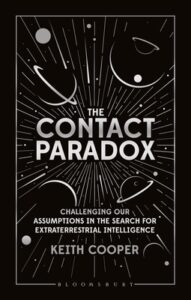 The Contact Paradox, Keith Cooper
The Contact Paradox, Keith Cooper
